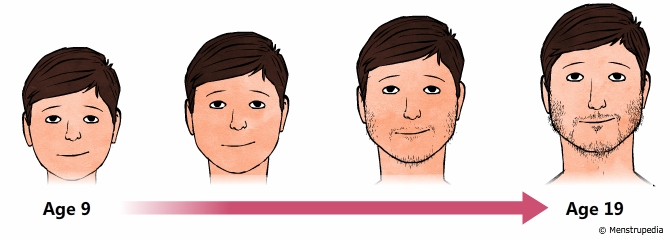What do we make of a boy like Thomas?
Thomas (his middle name) is a fifth-grader at the highly competitive P.S. 334, the Anderson School on West 84th. Slim as they get, Thomas recently had his long sandy-blond hair cut short to look like the new James Bond (he took a photo of Daniel Craig to the barber). Unlike Bond, he prefers a uniform of cargo pants and a T-shirt emblazoned with a photo of one of his heroes: Frank Zappa. Thomas hangs out with five friends from the Anderson School. They are “the smart kids.” Thomas’s one of them, and he likes belonging.
Since Thomas could walk, he has heard constantly that he’s smart. Not just from his parents but from any adult who has come in contact with this precocious child. When he applied to Anderson for kindergarten, his intelligence was statistically confirmed. The school is reserved for the top one percent of all applicants, and an IQ test is required. Thomas didn’t just score in the top one percent. He scored in the top one percent of the top one percent.
But as Thomas has progressed through school, this self-awareness that he’s smart hasn’t always translated into fearless confidence when attacking his schoolwork. In fact, Thomas’s father noticed just the opposite. “Thomas didn’t want to try things he wouldn’t be successful at,” his father says. “Some things came very quickly to him, but when they didn’t, he gave up almost immediately, concluding, ‘I’m not good at this.’ ” With no more than a glance, Thomas was dividing the world into two—things he was naturally good at and things he wasn’t.
For instance, in the early grades, Thomas wasn’t very good at spelling, so he simply demurred from spelling out loud. When Thomas took his first look at fractions, he balked. The biggest hurdle came in third grade. He was supposed to learn cursive penmanship, but he wouldn’t even try for weeks. By then, his teacher was demanding homework be completed in cursive. Rather than play catch-up on his penmanship, Thomas refused outright. Thomas’s father tried to reason with him. “Look, just because you’re smart doesn’t mean you don’t have to put out some effort.” (Eventually, he mastered cursive, but not without a lot of cajoling from his father.)
Why does this child, who is measurably at the very top of the charts, lack confidence about his ability to tackle routine school challenges?
Thomas is not alone. For a few decades, it’s been noted that a large percentage of all gifted students (those who score in the top 10 percent on aptitude tests) severely underestimate their own abilities. Those afflicted with this lack of perceived competence adopt lower standards for success and expect less of themselves. They underrate the importance of effort, and they overrate how much help they need from a parent.
When parents praise their children’s intelligence, they believe they are providing the solution to this problem. According to a survey conducted by Columbia University, 85 percent of American parents think it’s important to tell their kids that they’re smart. In and around the New York area, according to my own (admittedly nonscientific) poll, the number is more like 100 percent. Everyone does it, habitually. The constant praise is meant to be an angel on the shoulder, ensuring that children do not sell their talents short.
But a growing body of research—and a new study from the trenches of the New York public-school system—strongly suggests it might be the other way around. Giving kids the label of “smart” does not prevent them from underperforming. It might actually be causing it.
For the past ten years, psychologist Carol Dweck and her team at Columbia (she’s now at Stanford) studied the effect of praise on students in a dozen New York schools. Her seminal work—a series of experiments on 400 fifth-graders—paints the picture most clearly.
Dweck sent four female research assistants into New York fifth-grade classrooms. The researchers would take a single child out of the classroom for a nonverbal IQ test consisting of a series of puzzles—puzzles easy enough that all the children would do fairly well. Once the child finished the test, the researchers told each student his score, then gave him a single line of praise. Randomly divided into groups, some were praised for their intelligence. They were told, “You must be smart at this.” Other students were praised for their effort: “You must have worked really hard.”
Why just a single line of praise? “We wanted to see how sensitive children were,” Dweck explained. “We had a hunch that one line might be enough to see an effect.”
Then the students were given a choice of test for the second round. One choice was a test that would be more difficult than the first, but the researchers told the kids that they’d learn a lot from attempting the puzzles. The other choice, Dweck’s team explained, was an easy test, just like the first. Of those praised for their effort, 90 percent chose the harder set of puzzles. Of those praised for their intelligence, a majority chose the easy test. The “smart” kids took the cop-out.
Why did this happen? “When we praise children for their intelligence,” Dweck wrote in her study summary, “we tell them that this is the name of the game: Look smart, don’t risk making mistakes.” And that’s what the fifth-graders had done: They’d chosen to look smart and avoid the risk of being embarrassed.
In a subsequent round, none of the fifth-graders had a choice. The test was difficult, designed for kids two years ahead of their grade level. Predictably, everyone failed. But again, the two groups of children, divided at random at the study’s start, responded differently. Those praised for their effort on the first test assumed they simply hadn’t focused hard enough on this test. “They got very involved, willing to try every solution to the puzzles,” Dweck recalled. “Many of them remarked, unprovoked, ‘This is my favorite test.’ ” Not so for those praised for their smarts. They assumed their failure was evidence that they weren’t really smart at all. “Just watching them, you could see the strain. They were sweating and miserable.”
Having artificially induced a round of failure, Dweck’s researchers then gave all the fifth-graders a final round of tests that were engineered to be as easy as the first round. Those who had been praised for their effort significantly improved on their first score—by about 30 percent. Those who’d been told they were smart did worse than they had at the very beginning—by about 20 percent.
Dweck had suspected that praise could backfire, but even she was surprised by the magnitude of the effect. “Emphasizing effort gives a child a variable that they can control,” she explains. “They come to see themselves as in control of their success. Emphasizing natural intelligence takes it out of the child’s control, and it provides no good recipe for responding to a failure.”
In follow-up interviews, Dweck discovered that those who think that innate intelligence is the key to success begin to discount the importance of effort. I am smart, the kids’ reasoning goes; I don’t need to put out effort. Expending effort becomes stigmatized—it’s public proof that you can’t cut it on your natural gifts.
Repeating her experiments, Dweck found this effect of praise on performance held true for students of every socioeconomic class. It hit both boys and girls—the very brightest girls especially (they collapsed the most following failure). Even preschoolers weren’t immune to the inverse power of praise.
Jill Abraham is a mother of three in Scarsdale, and her view is typical of those in my straw poll. I told her about Dweck’s research on praise, and she flatly wasn’t interested in brief tests without long-term follow-up. Abraham is one of the 85 percent who think praising her children’s intelligence is important. Her kids are thriving, so she’s proved that praise works in the real world. “I don’t care what the experts say,” Jill says defiantly. “I’m living it.”
Even those who’ve accepted the new research on praise have trouble putting it into practice. Sue Needleman is both a mother of two and an elementary-school teacher with eleven years’ experience. Last year, she was a fourth-grade teacher at Ridge Ranch Elementary in Paramus, New Jersey. She has never heard of Carol Dweck, but the gist of Dweck’s research has trickled down to her school, and Needleman has learned to say, “I like how you keep trying.” She tries to keep her praise specific, rather than general, so that a child knows exactly what she did to earn the praise (and thus can get more). She will occasionally tell a child, “You’re good at math,” but she’ll never tell a child he’s bad at math.
But that’s at school, as a teacher. At home, old habits die hard. Her 8-year-old daughter and her 5-year-old son are indeed smart, and sometimes she hears herself saying, “You’re great. You did it. You’re smart.” When I press her on this, Needleman says that what comes out of academia often feels artificial. “When I read the mock dialogues, my first thought is, Oh, please. How corny.”
No such qualms exist for teachers at the Life Sciences Secondary School in East Harlem, because they’ve seen Dweck’s theories applied to their junior-high students. Last week, Dweck and her protégée, Lisa Blackwell, published a report in the academic journal Child Development about the effect of a semester-long intervention conducted to improve students’ math scores.
Life Sciences is a health-science magnet school with high aspirations but 700 students whose main attributes are being predominantly minority and low achieving. Blackwell split her kids into two groups for an eight-session workshop. The control group was taught study skills, and the others got study skills and a special module on how intelligence is not innate. These students took turns reading aloud an essay on how the brain grows new neurons when challenged. They saw slides of the brain and acted out skits. “Even as I was teaching these ideas,” Blackwell noted, “I would hear the students joking, calling one another ‘dummy’ or ‘stupid.’ ” After the module was concluded, Blackwell tracked her students’ grades to see if it had any effect.
It didn’t take long. The teachers—who hadn’t known which students had been assigned to which workshop—could pick out the students who had been taught that intelligence can be developed. They improved their study habits and grades. In a single semester, Blackwell reversed the students’ longtime trend of decreasing math grades.
The only difference between the control group and the test group were two lessons, a total of 50 minutes spent teaching not math but a single idea: that the brain is a muscle. Giving it a harder workout makes you smarter. That alone improved their math scores.
“These are very persuasive findings,” says Columbia’s Dr. Geraldine Downey, a specialist in children’s sensitivity to rejection. “They show how you can take a specific theory and develop a curriculum that works.” Downey’s comment is typical of what other scholars in the field are saying. Dr. Mahzarin Banaji, a Harvard social psychologist who is an expert in stereotyping, told me, “Carol Dweck is a flat-out genius. I hope the work is taken seriously. It scares people when they see these results.”
Since the 1969 publication of The Psychology of Self-Esteem, in which Nathaniel Branden opined that self-esteem was the single most important facet of a person, the belief that one must do whatever he can to achieve positive self-esteem has become a movement with broad societal effects. Anything potentially damaging to kids’ self-esteem was axed. Competitions were frowned upon. Soccer coaches stopped counting goals and handed out trophies to everyone. Teachers threw out their red pencils. Criticism was replaced with ubiquitous, even undeserved, praise.
Dweck and Blackwell’s work is part of a larger academic challenge to one of the self-esteem movement’s key tenets: that praise, self-esteem, and performance rise and fall together. From 1970 to 2000, there were over 15,000 scholarly articles written on self-esteem and its relationship to everything—from sex to career advancement. But results were often contradictory or inconclusive. So in 2003 the Association for Psychological Science asked Dr. Roy Baumeister, then a leading proponent of self-esteem, to review this literature. His team concluded that self-esteem was polluted with flawed science. Only 200 of those 15,000 studies met their rigorous standards.
I am smart, the kids’ reasoning goes; I don’t need to put out effort. Expending effort becomes stigmatized—it’s public proof that you can’t cut it on your natural gifts.
After reviewing those 200 studies, Baumeister concluded that having high self-esteem didn’t improve grades or career achievement. It didn’t even reduce alcohol usage. And it especially did not lower violence of any sort. (Highly aggressive, violent people happen to think very highly of themselves, debunking the theory that people are aggressive to make up for low self-esteem.) At the time, Baumeister was quoted as saying that his findings were “the biggest disappointment of my career.”
Now he’s on Dweck’s side of the argument, and his work is going in a similar direction: He will soon publish an article showing that for college students on the verge of failing in class, esteem-building praise causes their grades to sink further. Baumeister has come to believe the continued appeal of self-esteem is largely tied to parents’ pride in their children’s achievements: It’s so strong that “when they praise their kids, it’s not that far from praising themselves.”
By and large, the literature on praise shows that it can be effective—a positive, motivating force. In one study, University of Notre Dame researchers tested praise’s efficacy on a losing college hockey team. The experiment worked: The team got into the playoffs. But all praise is not equal—and, as Dweck demonstrated, the effects of praise can vary significantly depending on the praise given. To be effective, researchers have found, praise needs to be specific. (The hockey players were specifically complimented on the number of times they checked an opponent.)
Sincerity of praise is also crucial. Just as we can sniff out the true meaning of a backhanded compliment or a disingenuous apology, children, too, scrutinize praise for hidden agendas. Only young children—under the age of 7—take praise at face value: Older children are just as suspicious of it as adults.
Psychologist Wulf-Uwe Meyer, a pioneer in the field, conducted a series of studies where children watched other students receive praise. According to Meyer’s findings, by the age of 12, children believe that earning praise from a teacher is not a sign you did well—it’s actually a sign you lack ability and the teacher thinks you need extra encouragement. And teens, Meyer found, discounted praise to such an extent that they believed it’s a teacher’s criticism—not praise at all—that really conveys a positive belief in a student’s aptitude.
In the opinion of cognitive scientist Daniel T. Willingham, a teacher who praises a child may be unwittingly sending the message that the student reached the limit of his innate ability, while a teacher who criticizes a pupil conveys the message that he can improve his performance even further.
New York University professor of psychiatry Judith Brook explains that the issue for parents is one of credibility. “Praise is important, but not vacuous praise,” she says. “It has to be based on a real thing—some skill or talent they have.” Once children hear praise they interpret as meritless, they discount not just the insincere praise, but sincere praise as well.
Scholars from Reed College and Stanford reviewed over 150 praise studies. Their meta-analysis determined that praised students become risk-averse and lack perceived autonomy. The scholars found consistent correlations between a liberal use of praise and students’ “shorter task persistence, more eye-checking with the teacher, and inflected speech such that answers have the intonation of questions.”
Dweck’s research on overpraised kids strongly suggests that image maintenance becomes their primary concern—they are more competitive and more interested in tearing others down. A raft of very alarming studies illustrate this.
In one, students are given two puzzle tests. Between the first and the second, they are offered a choice between learning a new puzzle strategy for the second test or finding out how they did compared with other students on the first test: They have only enough time to do one or the other. Students praised for intelligence choose to find out their class rank, rather than use the time to prepare.
In another, students get a do-it-yourself report card and are told these forms will be mailed to students at another school—they’ll never meet these students and don’t know their names. Of the kids praised for their intelligence, 40 percent lie, inflating their scores. Of the kids praised for effort, few lie.
When students transition into junior high, some who’d done well in elementary school inevitably struggle in the larger and more demanding environment. Those who equated their earlier success with their innate ability surmise they’ve been dumb all along. Their grades never recover because the likely key to their recovery—increasing effort—they view as just further proof of their failure. In interviews many confess they would “seriously consider cheating.”
Students turn to cheating because they haven’t developed a strategy for handling failure. The problem is compounded when a parent ignores a child’s failures and insists he’ll do better next time. Michigan scholar Jennifer Crocker studies this exact scenario and explains that the child may come to believe failure is something so terrible, the family can’t acknowledge its existence. A child deprived of the opportunity to discuss mistakes can’t learn from them.
My son, Luke, is in kindergarten. He seems supersensitive to the potential judgment of his peers. Luke justifies it by saying, “I’m shy,” but he’s not really shy. He has no fear of strange cities or talking to strangers, and at his school, he has sung in front of large audiences. Rather, I’d say he’s proud and self-conscious. His school has simple uniforms (navy T-shirt, navy pants), and he loves that his choice of clothes can’t be ridiculed, “because then they’d be teasing themselves too.”
After reading Carol Dweck’s research, I began to alter how I praised him, but not completely. I suppose my hesitation was that the mind-set Dweck wants students to have—a firm belief that the way to bounce back from failure is to work harder—sounds awfully clichéd: Try, try again.
But it turns out that the ability to repeatedly respond to failure by exerting more effort—instead of simply giving up—is a trait well studied in psychology. People with this trait, persistence, rebound well and can sustain their motivation through long periods of delayed gratification. Delving into this research, I learned that persistence turns out to be more than a conscious act of will; it’s also an unconscious response, governed by a circuit in the brain. Dr. Robert Cloninger at Washington University in St. Louis located the circuit in a part of the brain called the orbital and medial prefrontal cortex. It monitors the reward center of the brain, and like a switch, it intervenes when there’s a lack of immediate reward. When it switches on, it’s telling the rest of the brain, “Don’t stop trying. There’s dopa [the brain’s chemical reward for success] on the horizon.” While putting people through MRI scans, Cloninger could see this switch lighting up regularly in some. In others, barely at all.
What makes some people wired to have an active circuit?
Cloninger has trained rats and mice in mazes to have persistence by carefully not rewarding them when they get to the finish. “The key is intermittent reinforcement,” says Cloninger. The brain has to learn that frustrating spells can be worked through. “A person who grows up getting too frequent rewards will not have persistence, because they’ll quit when the rewards disappear.”
That sold me. I’d thought “praise junkie” was just an expression—but suddenly, it seemed as if I could be setting up my son’s brain for an actual chemical need for constant reward.
What would it mean, to give up praising our children so often? Well, if I am one example, there are stages of withdrawal, each of them subtle. In the first stage, I fell off the wagon around other parents when they were busy praising their kids. I didn’t want Luke to feel left out. I felt like a former alcoholic who continues to drink socially. I became a Social Praiser.
Then I tried to use the specific-type praise that Dweck recommends. I praised Luke, but I attempted to praise his “process.” This was easier said than done. What are the processes that go on in a 5-year-old’s mind? In my impression, 80 percent of his brain processes lengthy scenarios for his action figures.
But every night he has math homework and is supposed to read a phonics book aloud. Each takes about five minutes if he concentrates, but he’s easily distracted. So I praised him for concentrating without asking to take a break. If he listened to instructions carefully, I praised him for that. After soccer games, I praised him for looking to pass, rather than just saying, “You played great.” And if he worked hard to get to the ball, I praised the effort he applied.
Just as the research promised, this focused praise helped him see strategies he could apply the next day. It was remarkable how noticeably effective this new form of praise was.
Truth be told, while my son was getting along fine under the new praise regime, it was I who was suffering. It turns out that I was the real praise junkie in the family. Praising him for just a particular skill or task felt like I left other parts of him ignored and unappreciated. I recognized that praising him with the universal “You’re great—I’m proud of you” was a way I expressed unconditional love.
Offering praise has become a sort of panacea for the anxieties of modern parenting. Out of our children’s lives from breakfast to dinner, we turn it up a notch when we get home. In those few hours together, we want them to hear the things we can’t say during the day–We are in your corner, we are here for you, we believe in you.
In a similar way, we put our children in high-pressure environments, seeking out the best schools we can find, then we use the constant praise to soften the intensity of those environments. We expect so much of them, but we hide our expectations behind constant glowing praise. The duplicity became glaring to me.
Eventually, in my final stage of praise withdrawal, I realized that not telling my son he was smart meant I was leaving it up to him to make his own conclusion about his intelligence. Jumping in with praise is like jumping in too soon with the answer to a homework problem—it robs him of the chance to make the deduction himself.
But what if he makes the wrong conclusion?
Can I really leave this up to him, at his age?
I’m still an anxious parent. This morning, I tested him on the way to school: “What happens to your brain, again, when it gets to think about something hard?”
“It gets bigger, like a muscle,” he responded, having aced this one before.






